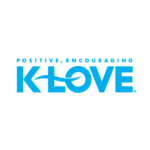Women, Infants and Children Threatened by Government Shutdown
By: Cindy Walton, SPCC Vice President, WIC/VMA
Cindy has been with SPCC for over 20 years and has worked as a WIC Nutritionist, Breastfeeding Coordinator and WIC Director. She also serves as Chairperson for the WIC Association of New York State.
WIC has improved the health, growth and development of at-risk women, infants and children for almost 40 years and has always had bipartisan support, but with the current federal shutdown, our local and national WIC Programs are in jeopardy. Over 9 million pregnant women, new mothers, infants and preschool children are enrolled in WIC nationwide. The Society for the Protection and Care of Children’s WIC program serves almost 5,000 people in the Finger Lakes area. Families rely on WIC to help them feed their families.
The Special Supplemental Nutrition Program for Women, Infants, and Children (WIC) is a federally funded program designed to address nutrition and health issues faced by low-income pregnant, breastfeeding and non-breastfeeding postpartum women, infants and children up to age five. Each person enrolled is prescribed a food package which includes specific food items designed to provide nutrients such as protein, calcium, iron, and Vitamins A and C. In addition to the supplemental foods, families are offered nutrition and health assessments, nutrition counseling, breastfeeding support, and referrals to health and community services.
Since the government shutdown, WIC participants and representatives from health care providers and community agencies have been flooding our phone lines to ask if SPCC’s WIC program is open. National news has reported that the WIC program has been shuttered and some local media has incorrectly reported closures in our area. For now, WIC programs in New York State are up and running. The New York State Department of Health has stated that there is funding available to operate through mid-November. If the government shutdown continues beyond then, the status of WIC is unclear.
Last week I spoke to several families about what the program means to them. The names are fictional, but their stories are real. Here is some of what they shared:
Karen is a 30 year old married woman with 3 children ages 4, 2, and 6 months. She and her husband work full-time and she is enrolled in nursing school. Their 4 year old was born with a heart defect and recently had open heart surgery; eventually he will need a heart transplant.
Karen told me that she depends on WIC. In addition to her son’s medical condition, all of her children have milk protein allergies. The baby has to have soy formula and the older children need soy milk, which is more expensive than regular cow’s milk. Fortunately, according to Karen, they are able to get the formula and milk they need with WIC checks. Karen said that they don’t qualify for SNAP/Food Stamps, so WIC is crucial to them being able to manage every month. She said:
“WIC is an excellent program, we need it!”
Rebecca is a 25 year old married mother of a 4 week old infant. She told me that she works full time, but is out on maternity leave. She hasn’t received any disability payments yet, so having WIC here to help is essential. She breastfeeds, but will return to work in early November and plans to supplement with formula.
She doesn’t know how she would afford to feed her 4 week old without WIC.
Jennifer and her husband have three children, ages 10, 5, and 9 months. Jennifer works part-time and her husband works full time. She said that if WIC wasn’t there to help her with formula, she wouldn’t be able to buy it. Her baby would have to drink plain milk. She said:
“WIC saves me. It’s really important to us!”
Terry is a single mom of a 3 week old infant. She lost her job a few months ago and has depended on WIC to help her buy healthy food during her pregnancy. Since the baby was born, she has been getting some formula from the baby’s pediatrician, but is depending on WIC for the formula she needs to supplement breastfeeding.
When asked what she would do if WIC wasn’t available
she took a deep breath and said, “I really have no clue.”
These are just 4 of the stories out of the 5,000 families served by SPCC-WIC program. All across the country families like these rely on WIC for nutritious foods, help with breastfeeding, nutrition guidance and linkages to other important services. Without the healthy foods and other essential services, WIC participants are at risk for nutrition related issues.
Numerous studies have shown the cost saving and positive health effects of WIC participation. If the government shutdown continues and WIC is forced to turn people away, it won’t be long before we begin to see the results of poor nutrition and lack of services. This in turn will end up costing far more in health care services in the future. The health and well-being of our nation’s women, infants and young children are at stake.




